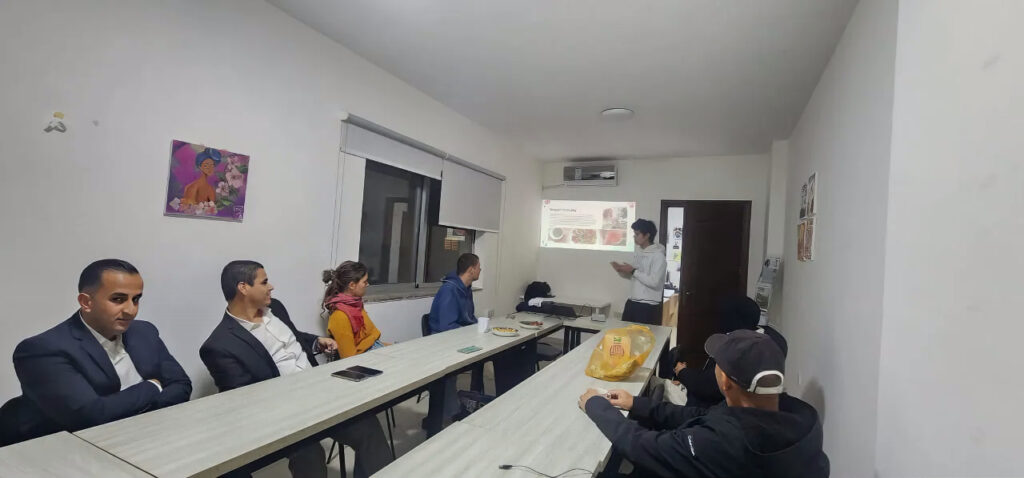On the 23rd of November, we hosted a workshop exploring the concepts of veganism and vegetarianism, topics that remain unfamiliar to many in Jordan. The session aimed to provide a clear understanding of these terms, their history, and the motivations behind them, while fostering an open dialogue about their implications.
We began by defining vegetarianism as a diet that excludes meat, fish, and poultry but may include animal-derived products like eggs and dairy. Veganism, in contrast, avoids all animal products, including dairy, eggs, and honey, and often extends to lifestyle choices such as avoiding leather or wool. This distinction was crucial in clearing up common misconceptions. The historical context followed, tracing vegetarianism to ancient cultures like India and Greece, where it was rooted in philosophical and religious traditions, while veganism was introduced as a term in 1944 to advocate for the rejection of all animal exploitation.
The discussion then turned to the motivations for adopting these lifestyles, focusing on health benefits such as reduced risks of chronic diseases, ethical concerns surrounding animal welfare, and the environmental advantages of plant-based diets, including a lower carbon footprint and reduced resource consumption.
The workshop concluded with an open discussion, where participants shared thoughts, raised questions, and examined the cultural and social implications of these practices in Jordan. This interactive session highlighted the potential for increased awareness and thoughtful choices in addressing global and local challenges.

